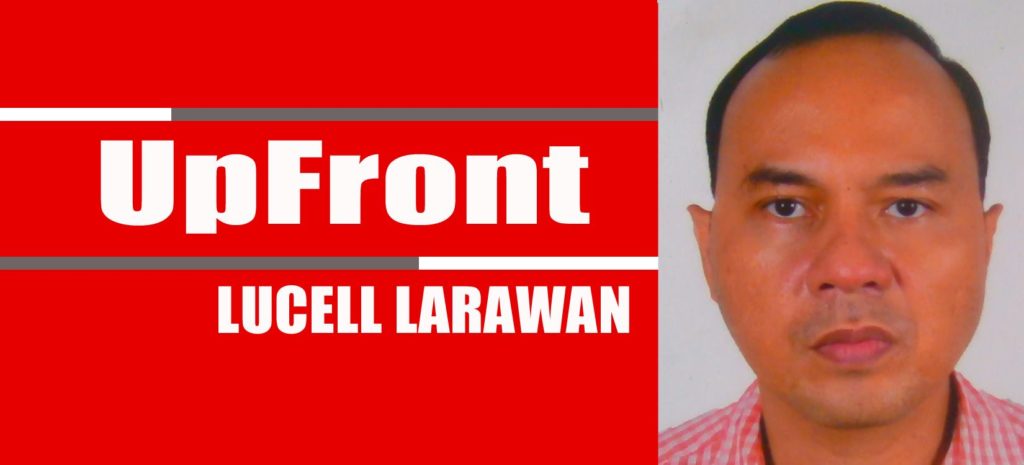
“If you fish and catch nothing, you have still caught a lesson.”
― Matshona Dhliwayo
This saying only applies if there are no fish surrounding the Bohol waters. But the province is no different compared to most provinces. In fact, we have a rich marine life. Diving has been a thriving business here. It simply means that fishers in our province are not the most deprived of the sea bounty. Fish is not scarce. Therefore, they and their middle-men cannot justify the above-average prices of their catch.
Every time I go to the wet market at Cogon or near the Shopper’s supermarket, I get disappointed with what I learn: tamarong for P230 (per kilo), bariles for P280, and tulingan for P220.
I compared these prices with what the Unang Hirit of GMA 7 presents in the wet markets of the National Capital Region. Surprisingly, the prices of fish in Manila is lower. How does this happen? It is like selling tamarong fish in Concepcion, Iloilo (fishing ground center in Region 6) for P220 per kilo, while it is only P170 in Manila where the sellers only have the Manila Bay and Pasig River nearby.
How can we make sense of the higher prices of fish in Bohol?
This problem plagues us for more than a decade. Our wet markets are still unregulated even after a long time. And I find no other explanation to justify it. If we try to attribute the resorts’ demand for our fishermen’s catch as the cause of high prices of fish, we have already tested this theory during the previous years, at the height of the pandemic. As observed, the prices of fish did not lower when resorts were closed. So, by elimination, the resorts do not make our fish scarce. They have nothing to do with the soaring prices. It is the fishermen and their middlemen who take the shots.
To throw daylight upon this concern, resolving this issue does not need genius. Leaders just need to be excellent public servants. We are not judging a fish by its ability to climb a tree. We only expect it to do what it does in the ocean. I mean this to make an analogy with what we expect of our leaders in dealing with this fishy concern.
Local leaders can actually do something. We are still waiting for them to act.
This leads me to think: the local government units did not fulfill its sworn mandate in regulating the prices of goods to uphold the public interest.
Let us base it on the Local Government Code of 1991. In Book 2, Chapter 3, Article 3, Section 458, the Sangguniang Panlungsod shall, among others, “approve ordinances… that regulate the preparation and sale of meat, poultry, fish, vegetables, fruits, fresh dairy products, and other foodstuffs for public consumption…” The public expects the Sanggunian to enact laws about the clamor of high prices, not only fish. They should not leave us to the market forces leading to extravagant profiteering, multiple middlemen, poverty, and chaos.
In relation to Article 3, Section 458 mentioned, the mayors also exercise the power to supervise and control all activities of the city. According to Book 2, Article 1, section 455 of the Local Government Code of 1991, the mayor “shall initiate and propose legislative measures to the sangguniang panlungsod…”
In the governor’s level, the same principle applies. The governor can start and propose legislative measures to keep our fears at bay. The Sangguniang Panlalawigan can also legislate control the wild prices in Bohol. There is no limit to what it can do for the common good.
We cannot buy the idea that only the middlemen bring us into a tight corner. This is partly true. Even if we live in a free economy where the market dictates the prices, the government also regulates the market. It cannot allow the prices to go wilder. It is the government’s sworn duty to serve the public interest. Unless it is unwilling.
The Department of Trade and Industry (DTI) is also in our midst. So far, it has a clearer mandate to regulate the prices in the market. What steps have the agency taken to resolve this issue, together with the relatively soaring prices of other products and services?
The consumer protection program of DTI seems absent or toothless. The DTI should have established the price ceiling of our basic commodities and implement it. If such a ceiling exists, we cannot yet see and feel them.
I may not have the best insight about our unusually high prices in Bohol, especially for fish. I might be wrong with my observations, but with my Masters of Management Specialized in Public Management, which I finished from the University of the Philippines in the Visayas, no bystander can downplay my observations and conclusion. Someone has to read books and journals about governance in the Philippine setting before he can butt in his hunches.
Do I need another formal study (my twelfth sole-authored academic research funded by an institution) to understand the issue?
This is about local leadership. There is a leadership gap.
We need solutions now. I am hoping for the best and I see a better economic landscape in Bohol with the coming of governor-elect Aris Aumentado. He can normalize our exploiting fish market.
Consumers caught little fish because they went to the profiteers. Ironically, the consumers can only eat little fish in an abundant marine sanctuary.
Yet, Boholanos should catch the lesson.

